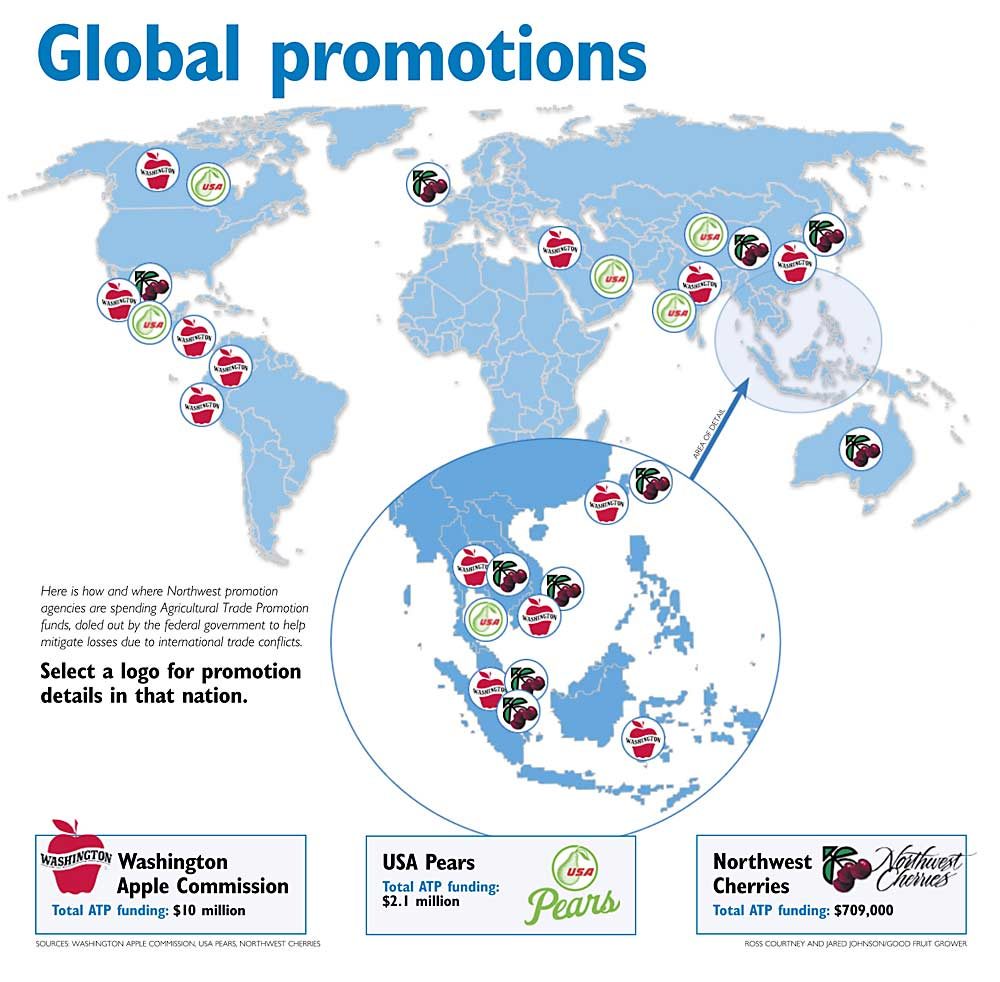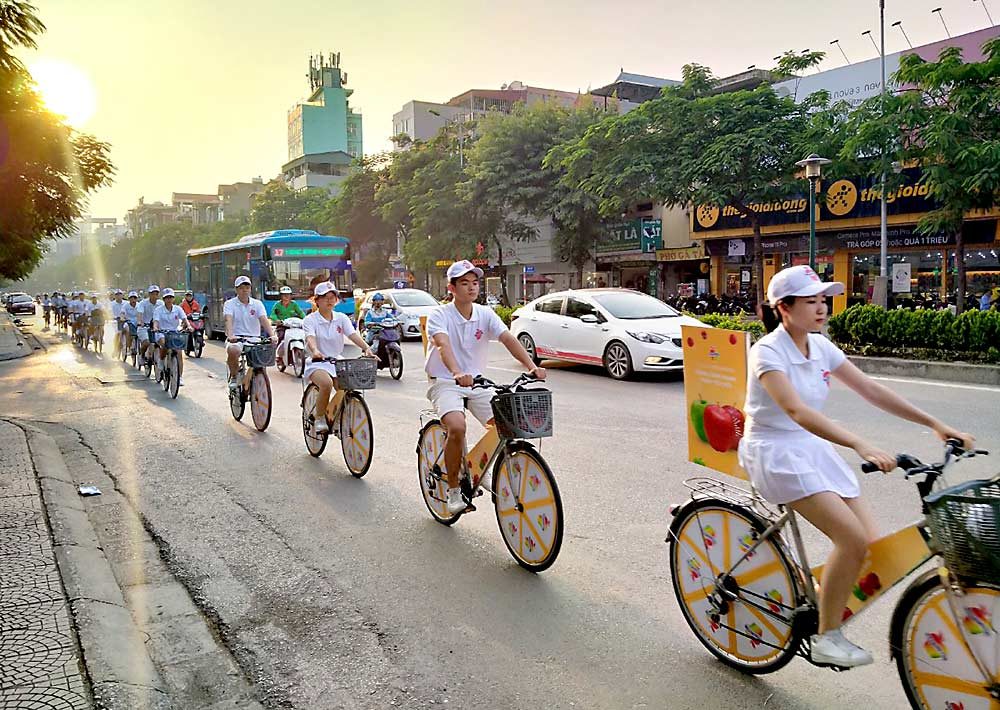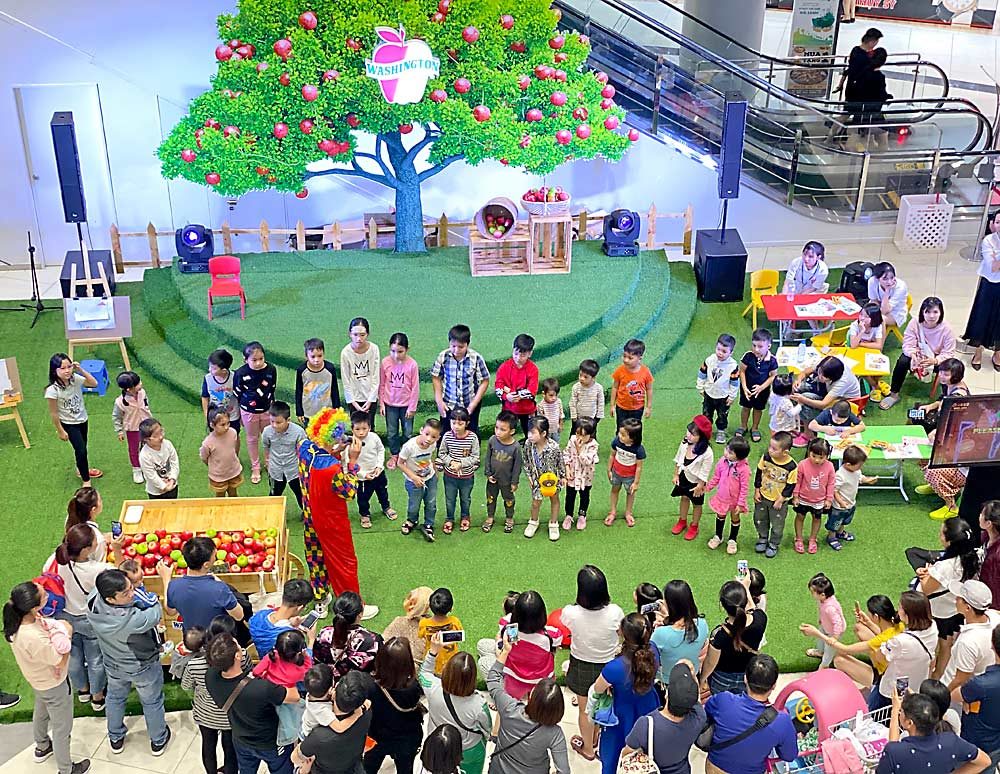
Carlos Lopez to the rescue.
The second-generation apple grower in Tieton, Washington, traveled to Guadalajara and Mexico City in December to speak to media, retailers and consumers about Washington apples.
“I believe it will be a great idea,” Lopez said in late November before he left. “It will be a good idea for me to see the consumer side of it.”
Lopez was one of eight growers to visit export regions as part of a promotional campaign led by the Washington Apple Commission. The trip is one piece of the new promotion programs Northwest tree fruit groups are conducting with federal money intended to help mitigate losses from global trade conflicts that the U.S. Department of Agriculture estimates have cost apples, cherries and pears a collective $410 million.

The funding program is called Agricultural Trade Promotion, a pool of $200 million set aside for the USDA to dole out to groups for new ways to build international markets in 2019, 2020 and 2021.
The Washington Apple Commission received $10 million, the Pear Bureau Northwest received $2.1 million and Northwest Cherries $709,000. They were among 57 agencies to receive money from the program, usually called ATP.
But the money comes with strings. For one, groups must contribute at least a 10 percent match from industry funds.
They also must use it for unique activities, not more of the same promotions they already paid for with Market Access Program, or MAP, dollars, another USDA pot of money granted annually to groups and businesses to build commercial export markets. Both programs are administered by USDA’s Foreign Agricultural Service.
“The rule is it has to be different than MAP money,” said Keith Hu, international marketing director for Northwest Cherries, which promotes sweet cherries from the states of Washington, Oregon, Idaho, Montana and Utah.
Meanwhile, groups must apply for ATP money with detailed activity proposals that the Foreign Agricultural Service approves or denies line by line. Also, ATP funds are nonrenewable, unlike MAP funds.
The three groups said that while they’d rather have free and unfettered trade, they will put the money to good use.
The Apple Commission considers the ATP-funded activities a way to prevent “brand erosion” in places where they worked hard to establish a reputation, said Toni Lynn Adams, a spokesperson for the Apple Commission.
“The concern is out of sight, out of mind,” Adams said.
Fruit from all over the world jockeys for position on store shelves, especially in Southeast Asia. If tariffs lower the volume of U.S. fruit, shoppers will inevitably think about U.S. fruit less often.
In Indonesia, the Apple Commission is holding fun runs and Zumba exercise sessions. In Vietnam, a team of riders on apple-decorated bikes roll in formation along the streets of Hanoi. In Central America, apples sponsor sports events.

Then, there is Carlos Lopez. During early December, he and seven other Washington growers traveled in teams to India, Mexico and several Southeast Asian countries, each team to a different region, as part of the larger Washington Apple Week promotion. The growers attended dinners, visited stores and spoke to media representatives, providing a grower face behind the product of Washington apples.
Lopez, 42, has worked in Yakima-area apple orchards since his teen years and now owns an orchard with his parents, Antonio Arteaga and Petra Lopez, immigrants from Mexico, Washington’s top apple export market.
“I feel grateful to be chosen out of many,” Lopez said. “There’s a lot of good farmers out there.”
Elsewhere in the world, the Pear Bureau, which manages the brand USA Pears for Washington and Oregon growers, under a federal marketing order, will hire a chef in Dubai, United Arab Emirates, to share recipes in the Persian Gulf region; organize a reverse trade mission, bringing Southeast Asian buyers to America’s production regions; and hire an actress in India, a judge on a televised talent show, to pitch Northwest pears.
Northwest Cherries will teach best handling practices to retailers in Australia and pass out cherry samples from food trucks on the streets of Seoul, South Korea, and throughout Taiwan.
Meanwhile, all the agencies are using the money for in-store demonstrations, television advertising and investing in digital promotion, such as hiring social media influencers.
While ATP funds are one-time only, they can lay the groundwork for more ongoing activities paid for by MAP funds and the industry directly, said Jeff Correa, international marketing director for USA Pears.
“In all of the markets, those activities will be the main activity that we can build the rest of our MAP-funded and industry-funded activity around and make those activities more effective,” Correa said. •
—by Ross Courtney
Related:
—New round of trade help
—Trade mitigation funds approved for Washington apples






Leave A Comment